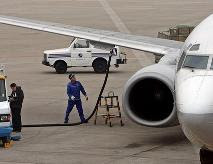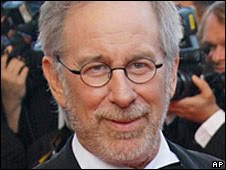
Even as the aviation industry is crying for a bail-out, state-run oil firms on Saturday hiked jet fuel prices by 4.5 percent in step with firming international oil rates, the second time in a month.
Indian Oil, Bharat Petroleum and Hindustan Petroleum raised Aviation Turbine Fuel (ATF) rates in Delhi by Rs 1,662 per kilolitre to Rs 38,585 per kl effective midnight tonight, an IOC official said on Saturday.
Global crude oil prices have firmed up during August on signs of recovery in major economies of the world including India. Crude oil prices rose to USD 74 per barrel last week.
The hike in ATF or jet fuel prices comes on the back of Rs 585 per kl or 1.6 per cent hike on 1st August.
In Mumbai, home to the nation's busiest airport, the rate will go up from Rs 38,098 per kl to Rs 39,830 per kl, the official said.
The rise in ATF price, which constitutes 40 percent of airlines' operating cost, may further put pressure on cash-strapped domestic carriers.
The state oil firms had in July cut jet fuel prices on falling international rates and the two hikes this month has wiped away the decline.
Jet fuel in Kolkata will be dearer at Rs 46,819 per kl from Rs 45,060 per kl, while in Chennai the price has been raised by Rs 1,816 per kl to Rs 42,605 per kl. The average hike works out to Rs 1,742 per kl.
ATF prices had peaked to Rs 71,028.26 per kl (in Delhi) in August last year on international crude prices touching a historic high of USD 147 a barrel.
But subsequently, the rates had come down, slashed every month till October and twice a month from November.
The three firms revise jet fuel rate every fortnight based on trends in international markets.
Two days ago, Civil Aviation Minister Praful Patel had raised in the union cabinet meeting the issue of ATF prices in the overall context of the health of the aviation sector, after which it was decided to set up a Group of Ministers (GoM) soon to study the impact of high jet fuel prices on the aviation industry and recommend measures to bring down its burden on operational costs of the airlines.
Patel said the base price of ATF in India was "much higher" than in most countries.










